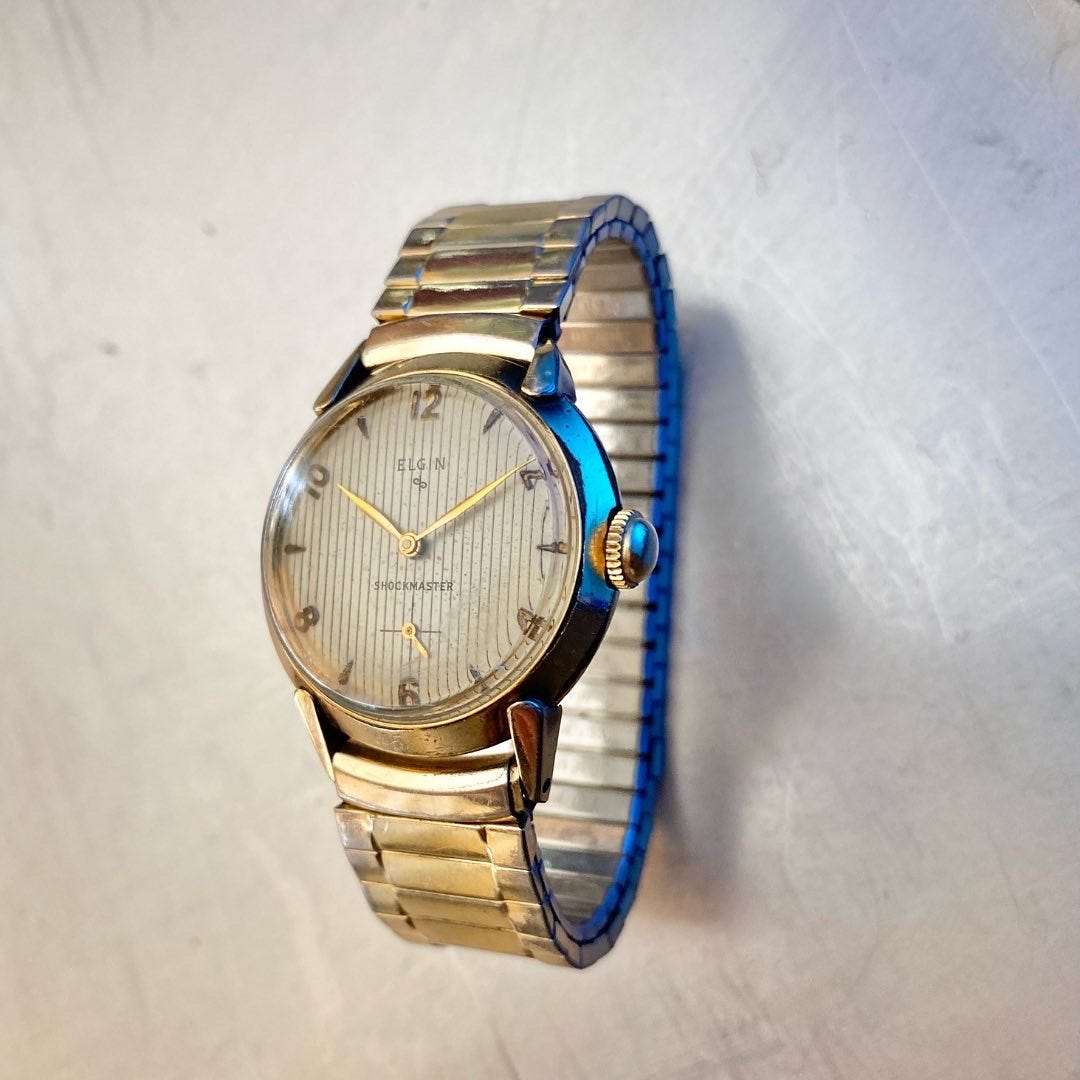It’s a little hilarious that the dearest object I have of my dad’s is a watch, because he was chronically, famously late. To trick himself into being on time, he set clocks and watches ahead; we knew that any timepiece under his control was not to be trusted. The clock in his car once set the record at 27 minutes fast.
The truth is, Dad was ahead of his time in lots of ways. He was the first in his family to complete high school, college, and graduate school. The watch, an Elgin Shockmaster, was a gift from his parents to their “absentminded professor” for being valedictorian of his high-school class.
When he was a little boy in the early 1940s, Dad lived in a rented shotgun house in a working-class section of New Orleans near the Garden District, integrated racially but less so economically. Louis Prima’s brother lived across the street. (When the late-model Cadillac convertible was parked out front, everyone knew Mr. Louis was in town.)
At a very young age, Dad questioned why Edward and Joe next door couldn’t go to his school just because they were Black. It didn’t make sense to his smart little brain that Edward and Joe’s mother, whom he called Mama Sarah, wasn’t treated with the same respect in certain shops as his own, white, mother. As he grew, these questions persisted and deepened. So after finishing college, marrying my mom, and graduating from Union Theological Seminary in New York, Dad went to work for the Urban League in Atlanta.
From that job, he went on to work for Mayors Victor Schiro and Moon Landrieu in the late 1960s, advising them on racial and social-justice issues as the first Excutive Director of the Human Relations Committee, and mobilizing community support for New Orleans’s first civil-rights laws since Reconstruction. He worked for Ernest N. “Dutch” Morial, New Orleans’s first Black mayor, on a wide range of initiatives from women’s and disabled community rights to the Jazz Fest.
I don’t know if Dad managed to be on time in his professional life. I do know he got a lot done and made New Orleans better and more equal. But even though his work was very serious, he was also playful, and so fun! When my sister and I were little, he would pretend to fall asleep so we could cover his head with little plastic clips until he looked like a rainbow porcupine. He teased us in a way that made us all giggle, and he always let us tease him back.
I wear the watch now sometimes when I need strength. It makes me feel like Dad is with me. I can picture his wrist when he wore it, and I also think about his hand when I held it in his last hours in the ICU. The rest of him didn’t look much like my dad anymore, but for some reason his hands still did, and it felt safe to hold them. The watch reminds me of that, and in a small way, it's a comfort.
—Camille Pecoul Carter





